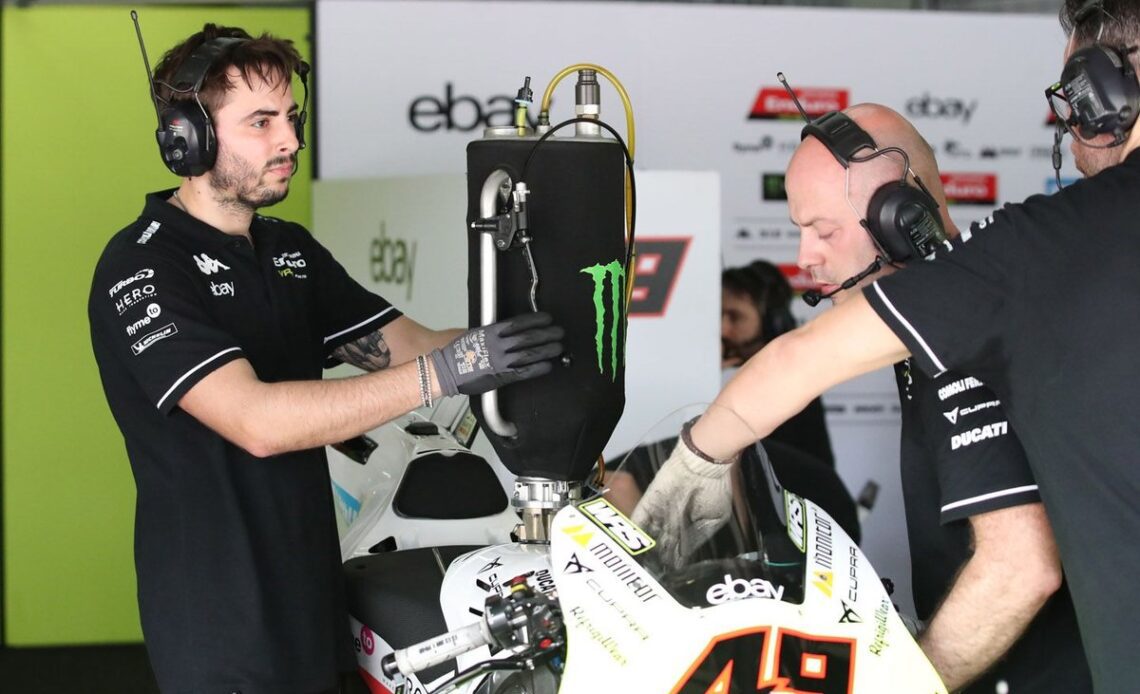By the time you read this feature, a little bit of motorsport history will have been made. The 2024 MotoGP Qatar Grand Prix was the first in the series’ history to have been completed by a grid using fuels of part-non-fossil origin. As MotoGP celebrates its 75th anniversary, it’s a milestone moment a far cry from the first premier class grand prix completed on the Isle of Man back in 1949 by Harold Daniell on a 500cc Norton.
The world is swaying into a crisis point, as global warming is fast reaching a catastrophic point for humanity. That poses an ethical question for motorsport. As the director of technology at Dorna Sports – MotoGP’s commercial rights holder – Corrado Cecchinelli tells Autosport, “it’s clear that if the goal was simply reducing racing carbon footprint, then the maximum impact on event sustainability is to not hold the event at all”.
It’s the truth, but thinking it’s as simple as that is to have an idealised view of the world. It’s a capitalist society and we all have bills to pay; not staging things for the good of the planet simply isn’t an option. And nor would it actually help to address the problem.
If you remove motorsport, there are still well over 1.5 billion vehicles in use around the planet. Some racing events not taking place on the weekends is a drop in the ocean compared to that. Motorsport has a major role to play in the world getting greener at the cost of the event’s footprint. Formula 1 is on course to introduce 100% sustainable fuels in 2026. MotoGP is targeting 2027 to have its grid powered by fuels of 100% non-fossil origin. The fuels will be created in a laboratory, using components sourced from a carbon capture scheme, or derived from municipal waste or non-food biomass.
But that’s the end goal. Right now, MotoGP is racing with fuels of 40% non-fossil origin. This, Cecchinelli explains, was something first discussed about three years ago. While the motoring industry is focusing more on hybrid and electric power routes, these “were soon easily discarded because nobody currently racing was convinced these were the way to go for two wheels”.
The demands for car and motorcycle manufacturers are, of course, different. And the bike industry has always generally lagged behind in this realm. As such, Cecchinelli says, a hybrid or electric future for MotoGP was “not that practical in the fallout of actual production”. And so we end up at sustainable…
Click Here to Read the Full Original Article at Autosport.com – MotoGP – Stories…

